As every rescuer knows, you must carefully monitor the progress of tiny newborn kittens.
Weighing the kittens is an imperative preventive measure in making sure all kittens thrive and make it to adulthood. Kittens grow fast during those first few weeks, doubling their own body weight every few days.
If a kitten fails to gain weight during this sensitive period, it means something has gone wrong and it's time for you to step in and do something about it.
Why weighing kittens is so important
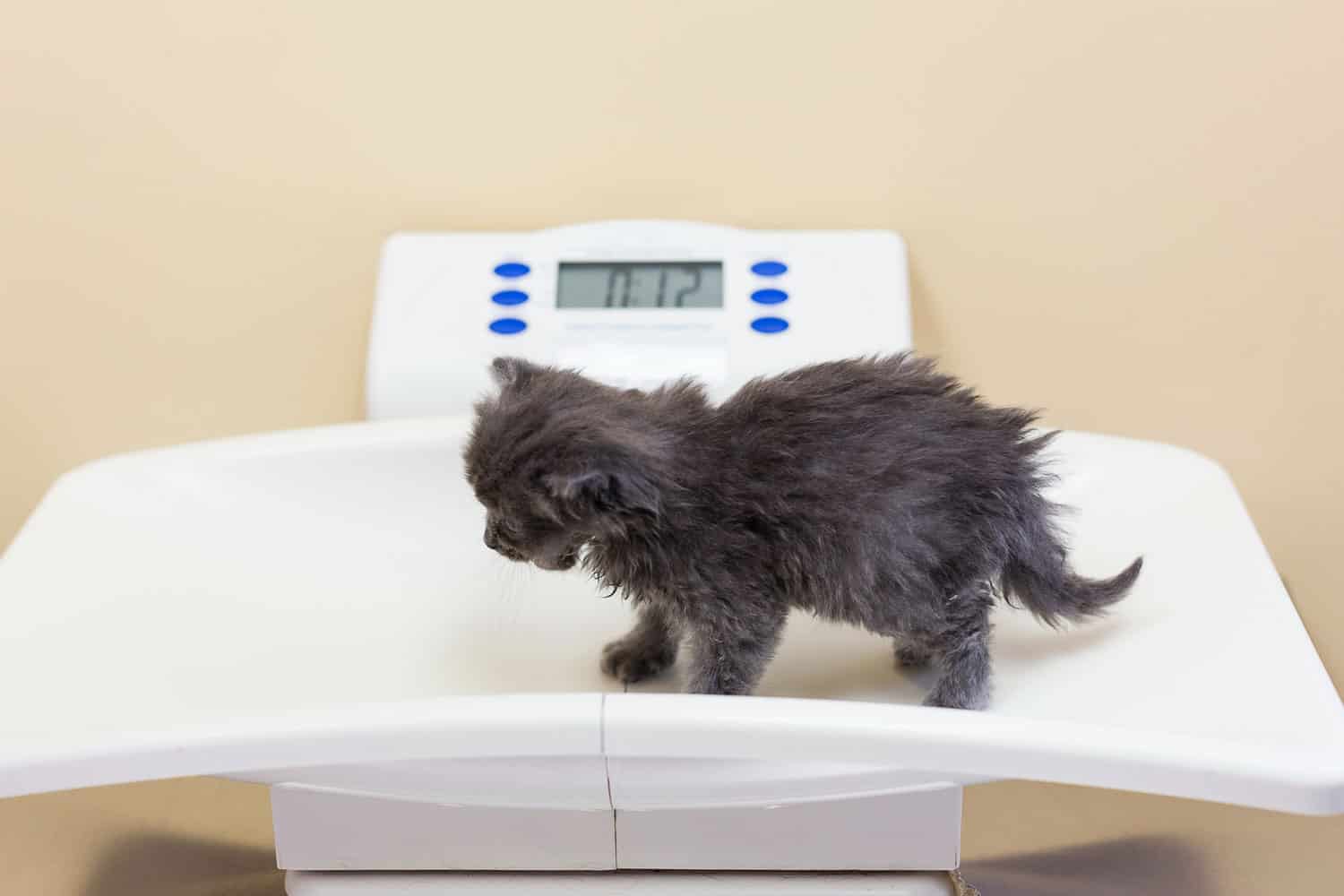
Blind, deaf, immobile and unable to regulate their body heat, kittens are very fragile and many don't make it past the first week or two of their lives.
Once a kitten takes a turn for the worse, it can be very difficult to save its life.
Having an early detection system in place can help deal with problems while they are still manageable. Good scales can help you do just that.
Often, the first sign of a problem is that a kitten stops gaining weight.
The only way for you to tell whether or not a kitten is not gaining enough weight is by carefully weighing the kittens at least once a day and writing down the data for each and every day.
If you are faced with the daunting challenge of hand rearing kittens, weighing the kittens is crucial in determining just how much to feed.
Overfeeding newborn kittens is likely to cause diarrhea, in itself a life-threatening condition as it can quickly lead to dehydration and kidney damage.
Not feeding enough is just as dangerous and causes a kitten to fail to thrive and eventually die.
SIGN UP FOR THECATSITE'S EMAIL UPDATES >
Should you weigh kittens that nurse from the mother cat?
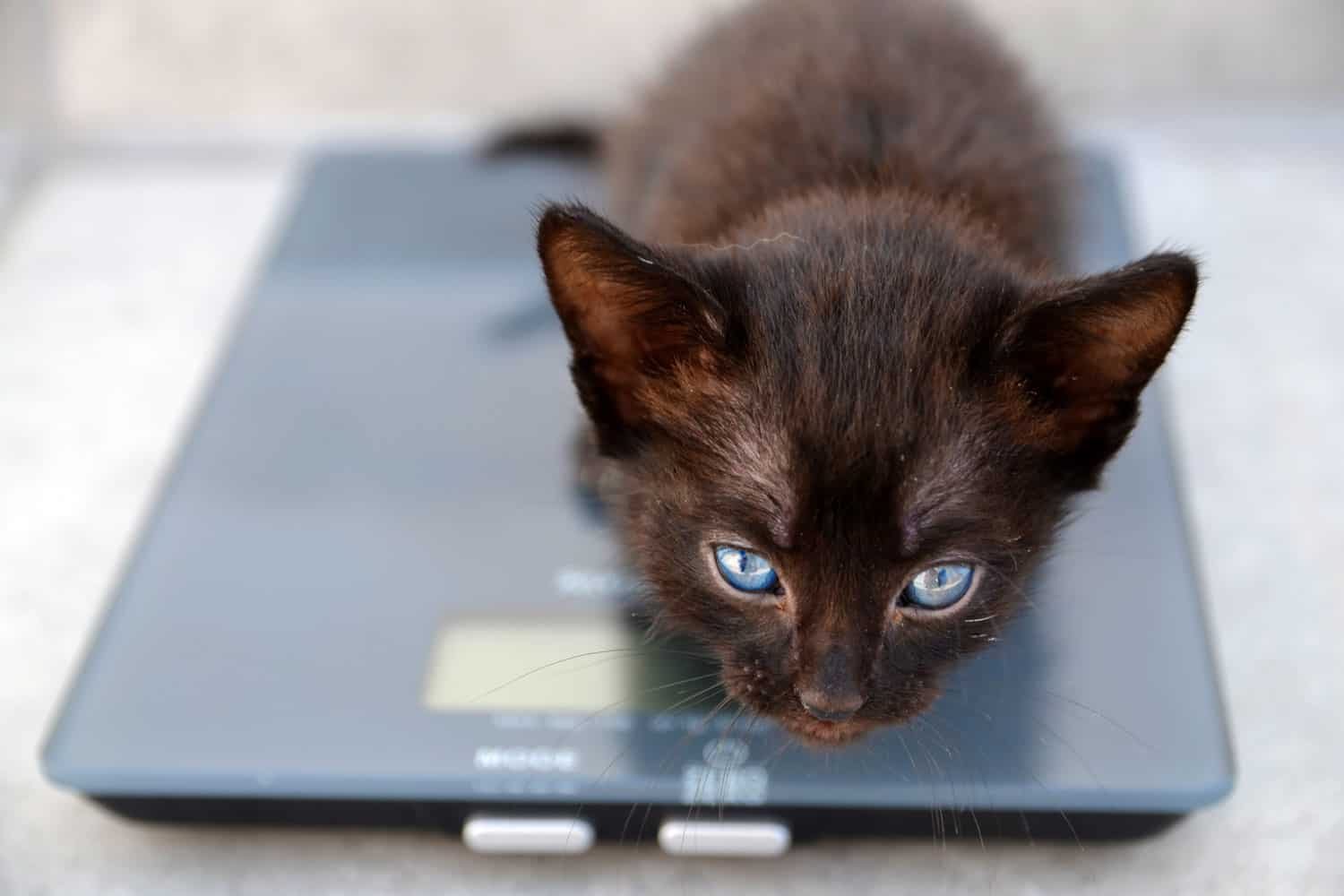
Even if the kittens are nursing from a mother cat, their weight must be closely monitored.
Malnutrition can be an issue when the mother cat may not be producing enough milk, or if a kitten is too weak to properly latch onto a nipple.
"The first ten days of life has the highest death rate and the majority of these deaths are simply due to lack of enough milk, literally a slow starvation death", says catwoman707, an experienced rescuer and team member of TheCatSite.com.
"When there are more than four kittens," she further explains, "some kittens, especially the runts of the litter, may not be consuming enough milk because they are constantly bumped off of the best nipples, the lower four."
Weighing also means you're handling the kittens on a daily basis. This can help you notice other problems in time as well.
"We had a couple of members who lost whole litters to fleas", says TheCatSite.com forum advisor StefanZ.
"They thought they weren't supposed to touch the kittens before they were at least two weeks old, and thus they never discovered the fleas until it was too late", he adds.
How to weigh newborn kittens
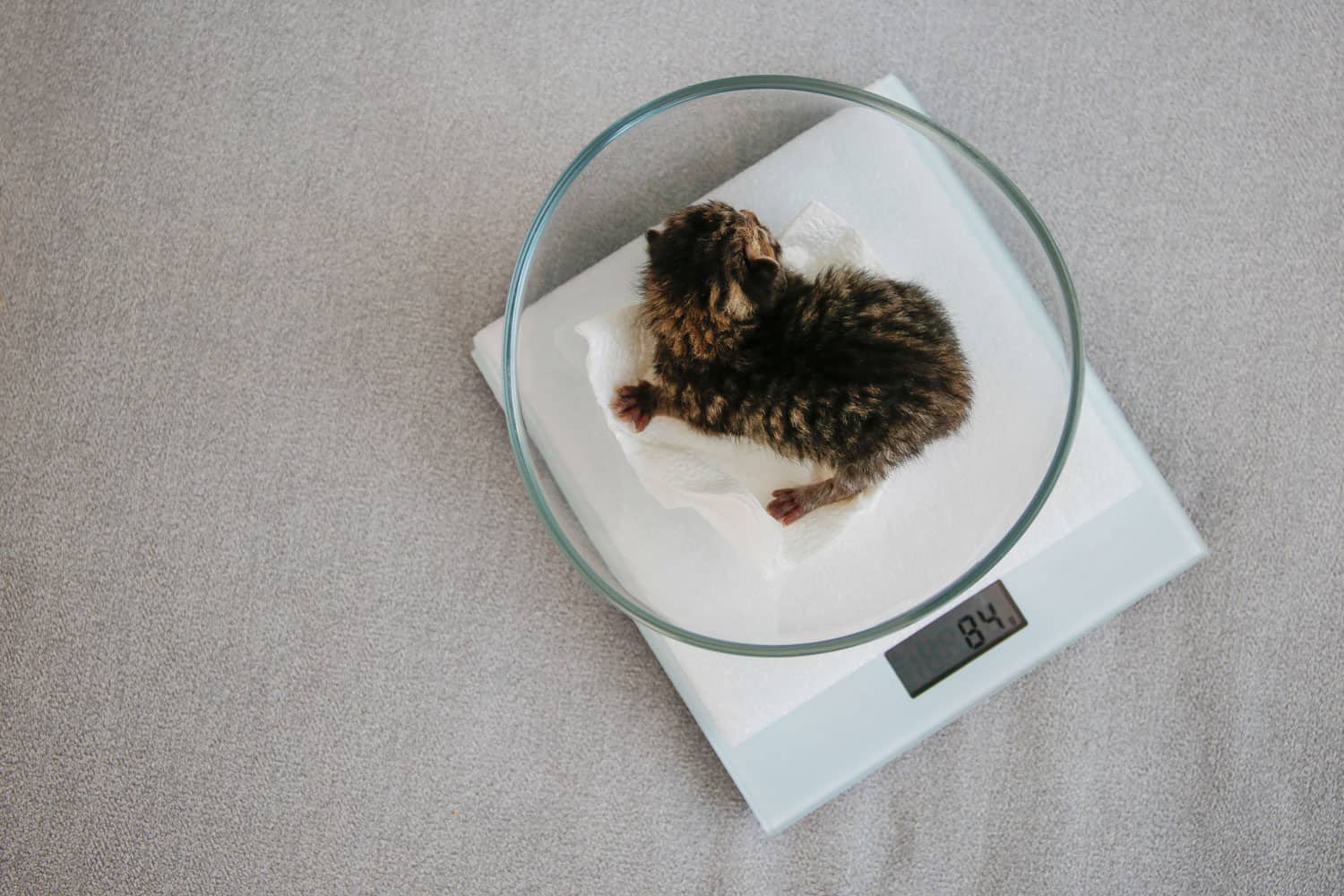
Our forum experts offer some tips for weighing newborn kittens:
1. Weigh the kittens at least once a day.
For generally healthy-looking kittens, once a day should be enough. Catwoman707 suggests weighing at-risk babies twice a day.
These would be kittens whose birth weight was 2.75 ounces and under, the runts in litters of five kittens or more, and kittens that are found away from their siblings and mother.
2. Weigh the kittens at the same time every day.
Weighing should be done every 24 hours at equal intervals. Our advisors suggest weighing the kittens at the same time every day to establish patterns in an effective way.
3. Keep the kittens close to the mother cat during weighing.
Mother cats vary in the degree of protectiveness over kittens but it is always less stressful for the mother cat to be able to see her kittens.
"Make sure mom can see what you are doing so she doesn't get agitated," says forum advisor tulosai.
4. Mark the kittens so that they can be clearly identified.
If you have more than one kitten with the same color pattern, you need to find a way to clearly tell them apart.
StefanZ suggests using food coloring on one of the kitten's paws, choosing different colors or simply applying the dye to different paws. The coloring should be renewed occasionally because the mother cat washes it off.
5. Use an accurate kitchen scale.
Any good kitchen/postal scale should work. Some of our advisors prefer a gram-based scale as it provides a more accurate reading.
Click Here To See This Kitchen Scale On Amazon
6. Write down the results.
Document every reading. This can be done in a notebook, on a calendar or in an excel spreadsheet. Whatever works for you, as long as the data is fully and accurately documented.
How much weight should a kitten gain?
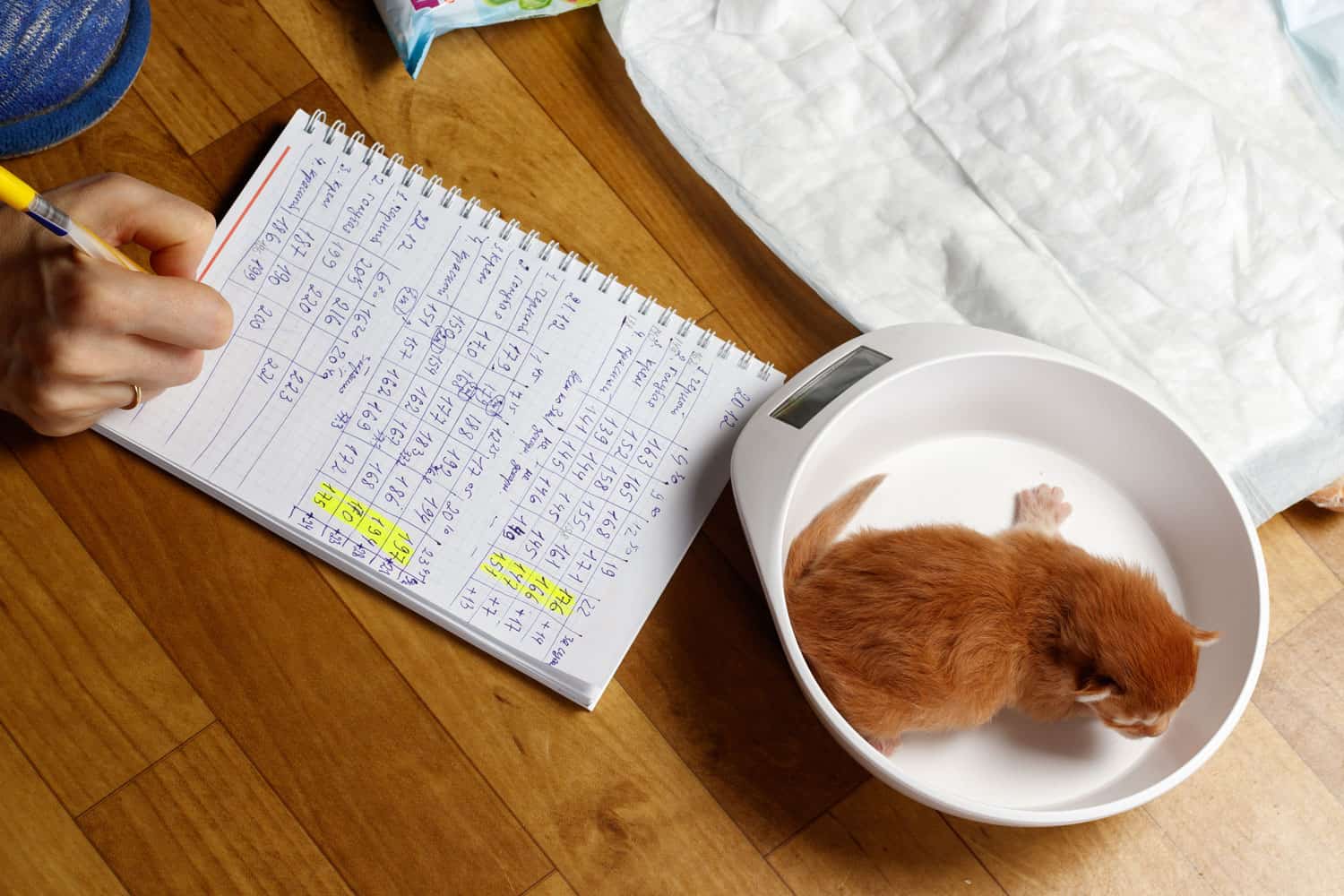
The exact number of grams that should be gained depends on the kitten's initial weight and its age.
Healthy kittens weigh between 80 and 170 grams (2.8-6 ounces) at birth. They gain weight quickly, sometimes even doubling their birth weight within a single week.
For an average healthy kitten, StefanZ suggests a weight gain of 10 grams a day as a good rule of thumb. Smaller kittens are expected to gain weight in smaller daily increments.
"Beginning day 2 babies should be gaining a minimum of 7 grams," says catwoman707.
"The safe area is more than 8 grams and some will gain up to 1/2 oz (14 grams) a day," she adds.
If a kitten that was born within the normal birth weight range fails to gain at least 7 grams a day for more than a single day, it's cause for concern.
What to do if you notice that a kitten isn't gaining enough weight?
If a kitten is gaining less than 7-8 grams a day during the first 10 days of its life, or if you notice a negative trend in incremental weight gain, you should step in.
Your kitten could be gradually starving to death. The most probable cause is that the kitten simply isn't getting enough milk.
This can be happening because he or she is the runt of the litter, not making it to the rich milk in the four major nipples in time, or for some other reason.
The way to help is by adding extra feedings for that kitten. If the kitten is still nursing, you will be supplementing that with extra feedings of KMR (kitten milk replacement). You can also use goat's milk if KMR isn't available.
Note that kittens who are still nursing will probably refuse a bottle. Instead, try feeding them with a small 1.0 ml syringe (without its needle) for better control over the amounts fed.
Sometimes you'll find that the mother cat has rejected the kitten. In this case, you should switch to hand rearing and feeding exclusively by hand.
Brush up on hand rearing kittens, including feeding them and you could be saving that kitten's life.
SIGN UP FOR THECATSITE'S EMAIL UPDATES >
Not sure about any of the information in this article?
Consult with an experienced breeder or rescuer, or with your veterinarian. You can also write for advice from our rescue experts in the Pregnant Cat & Kitten Care forum.
Additional reading:
Kitten Development Stages - Illustrated Guide
Hand Rearing Kittens
This article was written with the help and advice of TheCatSite.com team members: StefanZ, tulosai, jcat, Red Top Rescue, catwoman707, GemsGem, and CatPack.
Get more advice and support by posting your question in the Kitten Care forum.
Note: We may get commissions for purchases made through links on this page.

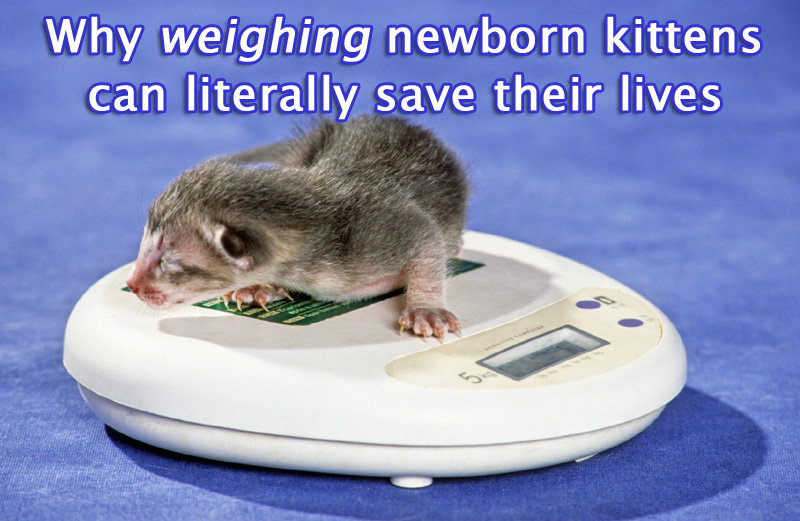

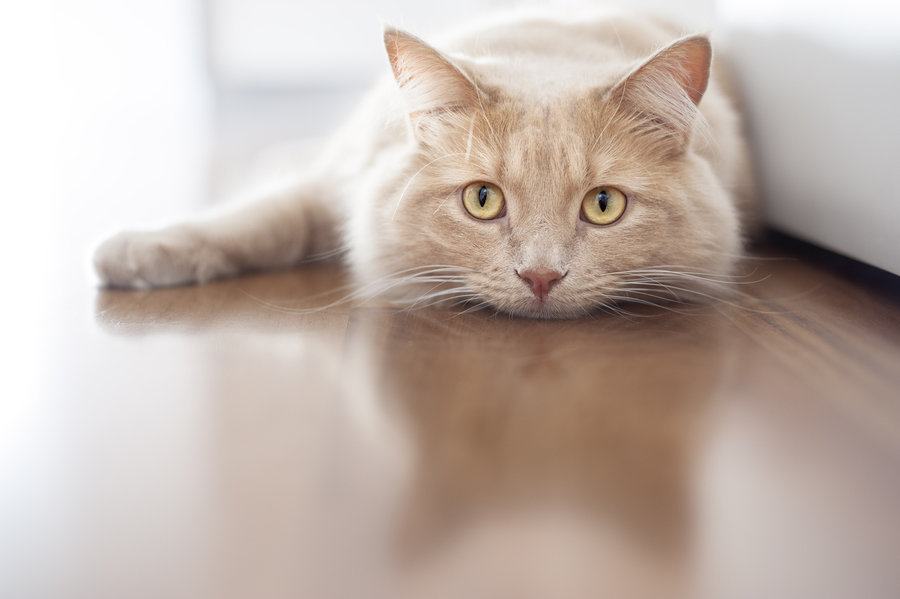
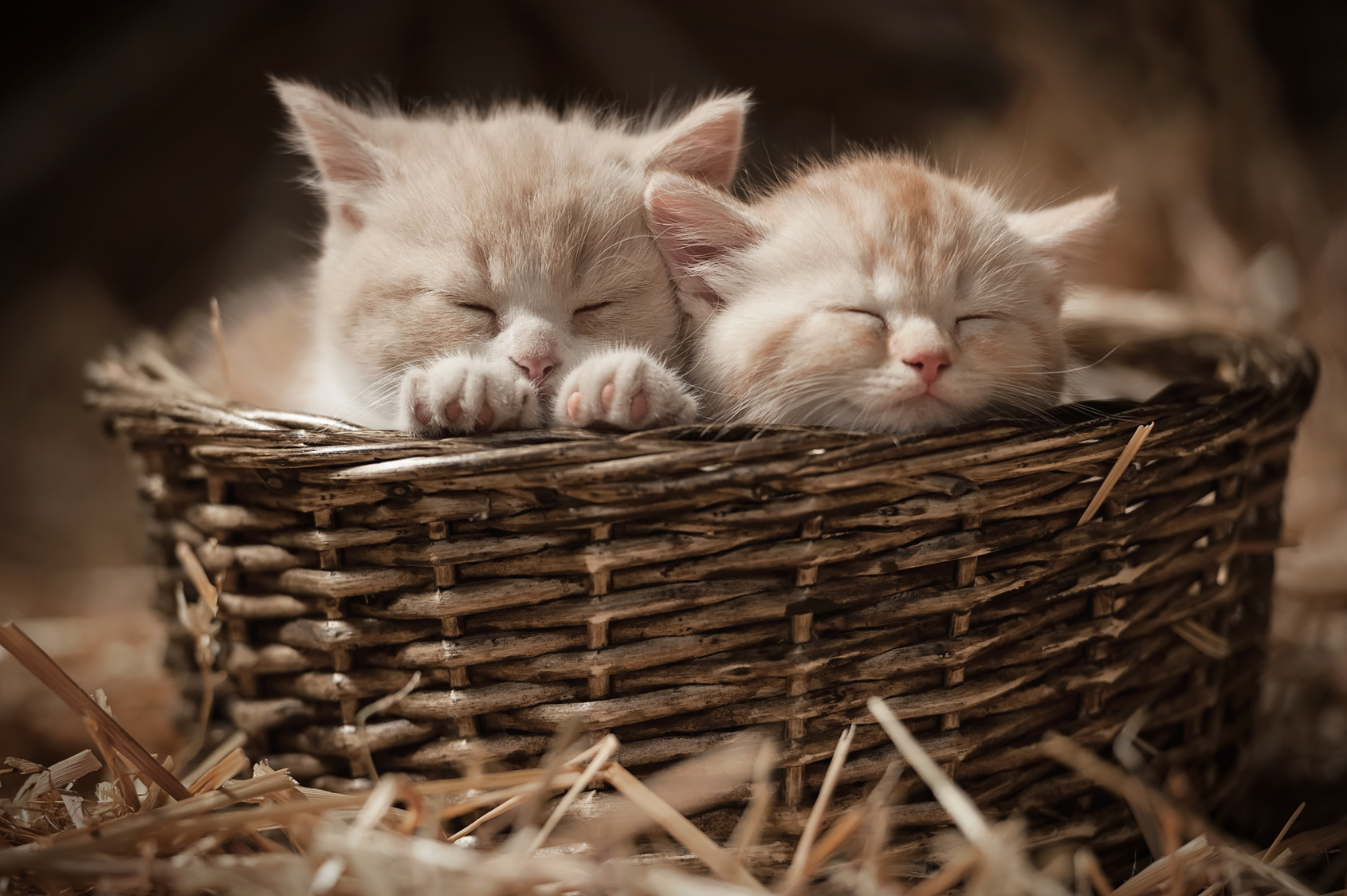
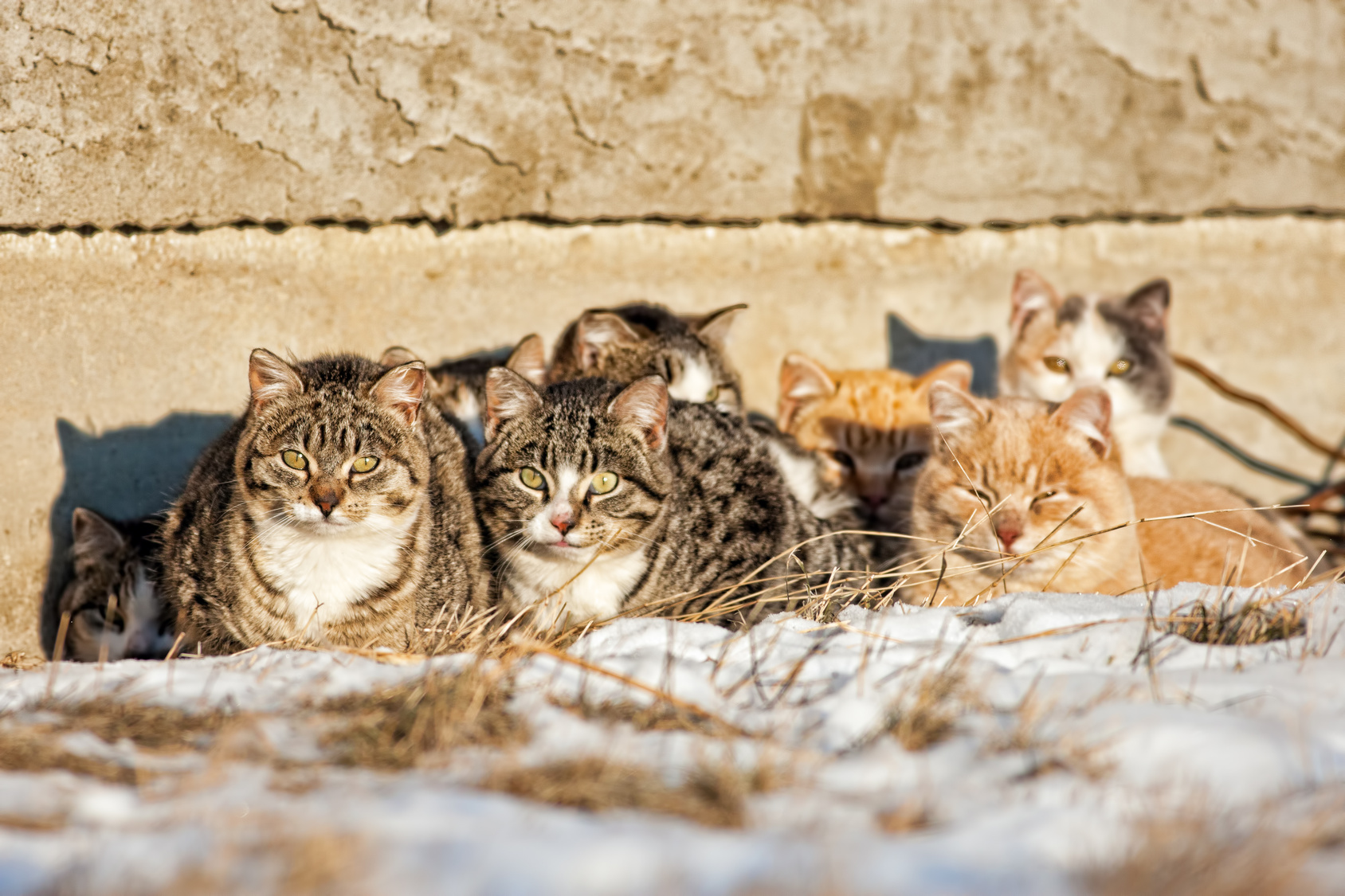
11 comments on “Weighing Newborn Kittens (and How This Could Save Their Lives)”